
Russia: New York Times withdraws all correspondents for first time in more than a century
New York Times withdraws all correspondents from Russia for first time in more than a century
From CNN’s Hannah Ritchie
The New York Times (NYT) has pulled all its correspondents out of Russia, marking the first time in over a century that the paper will have no reporters on the ground there.
“Very sad day for the history of @nytimes in Moscow. Pulling all its correspondents out of the country. We have had reporters there continuously since 1921, with one or two short interruptions due to visa hiccoughs. Not Stalin, not the Cold War, nothing drove us out,” Neil MacFarquhar, a former NYT Moscow bureau chief tweeted.
The paper announced its formal withdrawal from Russia in a statement Tuesday, citing new legislation which seeks to criminalize journalists reporting on Moscow’s invasion in Ukraine by outlawing any references to “war.”
“Russia’s new legislation seeks to criminalize independent, accurate news reporting about the war against Ukraine. For the safety and security of our editorial staff working in the region, we are moving them out of the country for now,” said New York Times spokeswoman Danielle Rhoades Ha.
Read more on the difficult decisions news outlets are making in Russia:
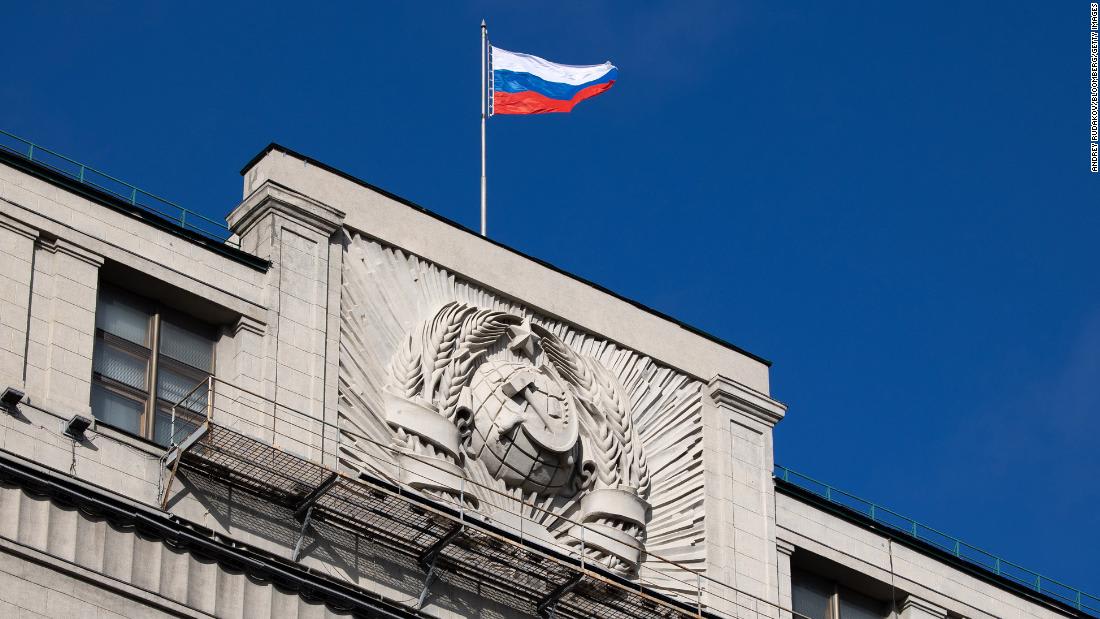
UK Defense Ministry: Ukraine’s air defenses enjoying “considerable success” against Russian aircraft
From CNN’s Josh Campbell and Hannah Ritchie
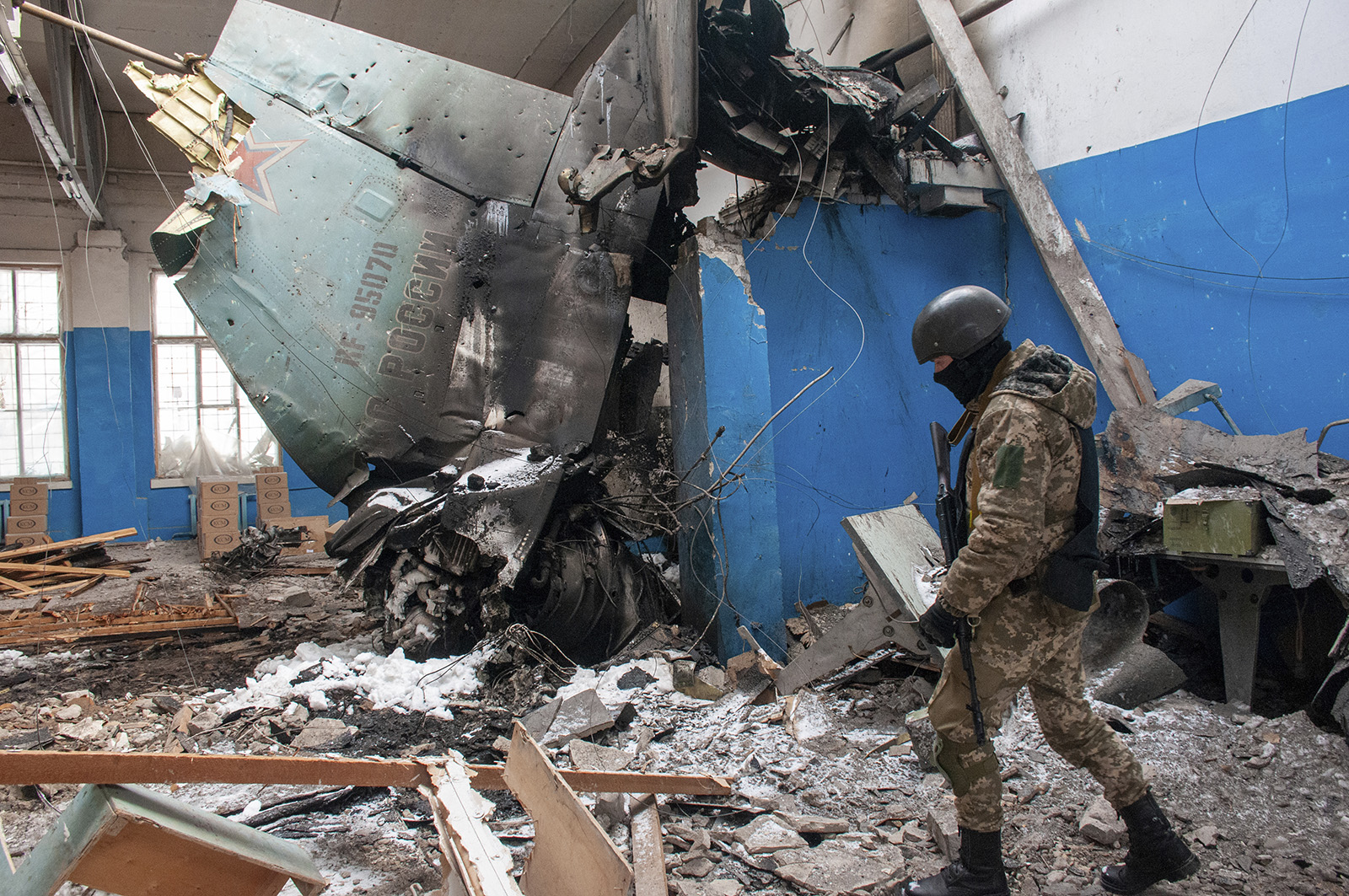
Ukraine’s air defenses have “enjoyed considerable success against Russia’s modern combat aircraft,” Britain’s Ministry of Defense tweeted Wednesday.
In its latest intelligence update on Russia’s invasion, the ministry said Ukraine has “probably” prevented Russia from “achieving any degree of control of the air.”
“Fighting north-west of Kyiv remains ongoing with Russian forces failing to make any significant breakthroughs,” the statement added.
In a separate update posted Wednesday, the ministry warned the Ukrainian cities of Kharkiv, Chernihiv, Sumy and Mariupol remain “encircled by Russian forces and continue to suffer heavy Russian shelling.”
Evacuation corridor out of Sumy will remain open Wednesday, regional governor says
From CNN’s Hannah Ritchie and Teele Rebane
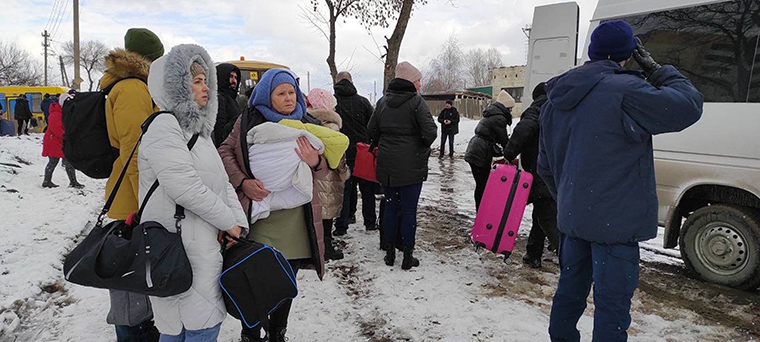
An evacuation corridor from the city of Sumy, northeastern Ukraine will stay in operation Wednesday, regional governor Dmytro Zhyvytskyy said in a social media post.
“Friends! The negotiation team worked all night, and they extended the humanitarian corridor operation from Sumy to Poltava today,” Zhyvytskyy said early Wednesday, adding the corridor will be open from 9 a.m. until 9 p.m. local time.
People will be able to travel in their personal vehicles, he said. Also, 22 buses used during Tuesday’s evacuation will be returned to the city from the central city of Poltava to help the evacuations from about 2 p.m. local time, he said.
“They are the same buses we had yesterday for the first transport column. They will be used to transport pregnant women, women with children, elderly, and people with disabilities,” he added.
The corridor enabled some 5,000 civilians to evacuate the city on Tuesday, according to deputy head of the Ukrainian presidential office Kirill Timoshenko.
Some context: Sumy has been subjected to heavy attacks by Russian forces in the past few days, with most of its population cut off from the rest of Ukraine. An overnight airstrike in the city on Monday killed at least 21 civilians.
Analysis: Biden slams “Putin’s price hike” as high gas prices add to Democrats’ woes
Analysis from CNN’s Stephen Collinson
America’s immediate political future will turn on this critical point: whether drivers stung by record gas prices blame Russian President Vladimir Putin or US President Joe Biden.
A staggering surge in the elevated cost of filling up since Russia invaded Ukraine represents another gut punch for consumers already swamped by a 40-year peak in inflation coming out of the pandemic.
And Biden acknowledged on Tuesday there is more pain to come, telling reporters his executive order banning imports of Russian energy signed Tuesday will heap more pain on gasoline prices ahead of spring break and summer vacation.
The war in Ukraine created yet another extreme challenge for Biden, who took office in the face of the worst public health crisis in 100 years and has seen his personal approval ratings plunge after failing to quickly conquer Covid-19 last year.
The gas price issue encapsulates a dilemma that can often afflict presidents at times of international crises.
Biden is being compelled to take action in defense of critical global imperatives like the defense of international law, the plight of a people under vicious bombardment and a desire to deter a dangerous dictator. But he knows that his actions will have a detrimental impact back home.
In the current polarized national environment and with only eight months to go before congressional elections, the downside for the President will only be magnified.
Read Collinson’s full analysis here:
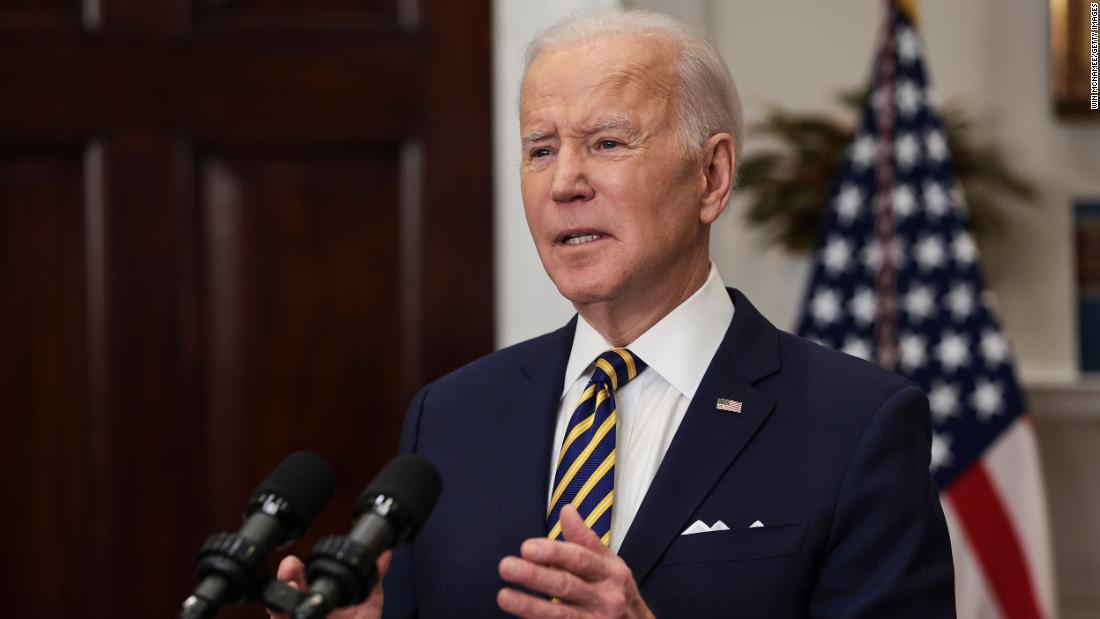
It’s 7 a.m. in Kyiv. Here’s what you need to know
Western nations are targeting Russia’s oil exports as President Vladimir Putin’s invasion of Ukraine — which has forced at least 2 million refugees to flee the country — enters a 14th day.
Here are the latest developments:
- Sumy evacuation: A tense and fleeting evacuation from Ukraine’s northeastern city of Sumy took place after a Russian airstrike killed 21 people, Ukrainian authorities said. About 5,000 people fled the city on Tuesday, according to a Ukrainian official. Some 700 Indian students also made it out, according to Indian authorities.
- Russian oil export ban: President Joe Biden announced a ban on Russian oil, natural gas and coal imports to the US — a step he warned could lead to a spike in gas prices. The UK said it will phase out “the import of Russian oil and oil products by the end of 2022” and the EU said it plans to slash Russian gas imports by two-thirds this year and phase out dependence before 2030.
- Poland’s jets: The US is sending two Patriot missile batteries to Poland as a “defensive deployment” to counter any potential threat to US and NATO allies, a spokesman for US European Command said. Earlier Tuesday, the Pentagon dismissed Poland’s proposal to transfer its MiG-29 fighter jets to the US for delivery to Ukraine, calling it not “tenable.”
- Zelensky channels Churchill: Ukraine’s President Volodymyr Zelensky addressed the UK House of Commons, urging lawmakers to strengthen sanctions against Moscow. Echoing former British Prime Minister Winston Churchill’s famous wartime speech, Zelensky said, “We will fight until the end at sea, in the air. We will continue fighting for our land, whatever the cost.”
- Ukraine wary over ceasefire: The Ukrainian Armed Forces said it “is difficult to trust the occupier,” after Russia announced a new ceasefire starting at 10 a.m. Moscow time (9 a.m. Ukrainian/2 a.m. ET) Wednesday. Russia said it’s ready to provide evacuation corridors from Kyiv, Chernihiv, Sumy, Kharkiv and Mariupol, along with other cities negotiated with the Ukrainian side.
- Civilians held “hostage”: The ceasefire proposal comes as Ukraine’s foreign minister said Russian troops are holding 300,000 civilians “hostage” in the besieged southern city of Mariupol, where he said a child died of dehydration. Ukrainian authorities said a long-awaited convoy of humanitarian aid to the city appeared to have come under fire.
- US brands pull out of Russia: McDonald’s and Starbucks became the latest Western businesses to close operations in Russia, following Coca-Cola and PepsiCo, which is also pulling some products from the country.
Russian-American charged with acting as illegal Russian agent in the US
From CNN’s Sonia Moghe
A dual Russian-American citizen has been charged with acting as a spy in the US, according to court filings that say she ran organizations that “sought to spread Russian propaganda.”
Elena Branson was charged Tuesday with acting and conspiring to act in the US illegally as an agent of the Russian government, willfully failing to register under the Foreign Agents Registration Act, conspiring to commit visa fraud and making false statements to the FBI, according to a criminal complaint.
The complaint alleges that Branson fled to Russia in 2020.
From at least 2011, Branson worked on behalf of the Russian government and Russian officials to advance Russian interests in the US, the complaint says. Prosecutors allege she coordinated meetings for Russian officials to lobby US political officials and businesspeople, and operated organizations to publicly promote Russian government policies.
CNN has attempted to contact Branson for comment on the charges.
The charges come as tensions between the US and Russia continue to intensify following Russia’s unprovoked invasion of Ukraine last month, with the US front-and-center in a multinational effort to punish Russia for its actions.
Read more:
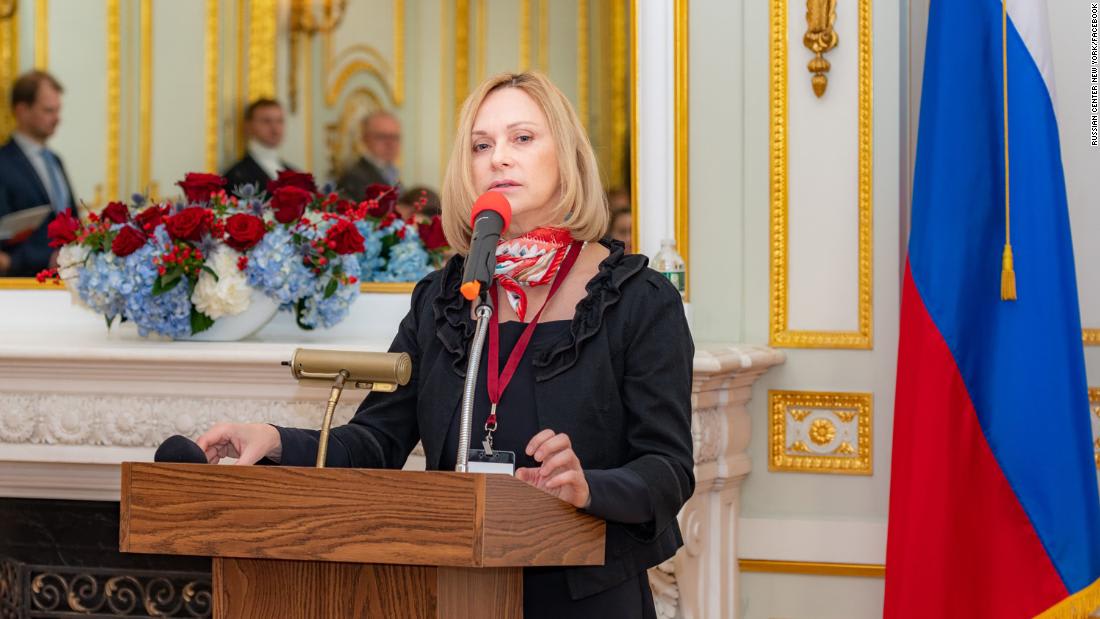
5,000 people evacuated from Sumy, Ukrainian presidential office deputy says
From CNN’s Paul P. Murphy
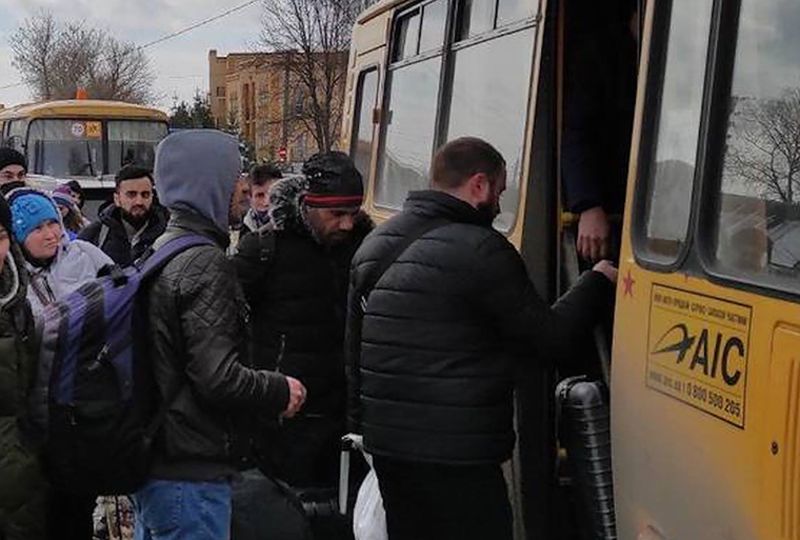
About 5,000 people and 1,000 cars evacuated the city of Sumy, northeastern Ukraine on Tuesday, according to deputy head of the Ukrainian presidential office Kirill Timoshenko.
Timoshenko made the announcement on his Telegram channel. He also posted a video appearing to show people leaving during the evacuations.
CNN could not independently verify Timoshenko’s evacuation statistics.
Sumy has seen heavy attacks in the past few days and is almost cut off from the rest of the country. Some 21 people were reported killed in the city in an airstrike Monday night.
A tense and fleeting evacuation from Sumy took place on Tuesday, with civilians fleeing in private cars and buses taking people to Poltava, about 160 kilometers (100 miles) away in central Ukraine, according to Dmytro Lunin, head of the Poltava regional administration.
US sending Patriot missiles to Poland to counter any threats to allies
From CNN’s Barbara Starr
The United States is sending two Patriot missile batteries to Poland as a “defensive deployment” to counter any potential threat to US and NATO allies during Russia’s ongoing invasion of Ukraine, a spokesman for US European Command said Tuesday night.
Patriots are air defense missile systems: They are designed to counter and destroy incoming short-range ballistic missiles, advanced aircraft and cruise missiles.
“At the direction of the Secretary of Defense and at the invitation of our Polish allies, General Wolters, Commander, of US European Command has directed US Army Europe and Africa to reposition two Patriot Batteries to Poland,” Capt. Adam Miller, spokesman for EUCOM said in a statement.
“This is a prudent force protection measure that underpins our commitment to Article Five and will in no way support any offensive operations,” the statement said, referring to the principle that an attack on one member of NATO is an attack on all members. “Every step we take is intended to deter aggression and reassure our allies.”
CNN reported earlier this week that the US was considering sending Patriots to allies.
Analysis: The US could be making a high stakes bet with Venezuela. Putin is the reason
Analysis from CNN’s Stefano Pozzebon in Caracas, Venezuela
The recent trip by two top US foreign policy officials to Caracas, Venezuela, is a sign of just how much the geopolitical balance could be shifting in the wake of Russia’s invasion of Ukraine.
National Security Council Senior Director Juan Gonzalez and Venezuela Affairs Unit Chief James Story met embattled Venezuelan leader Nicolas Maduro and his wife on Saturday — the first since diplomatic relations between the two countries broke down in 2019.
Coverage of the meeting has, so far, focused on the possibility the White House might lift some of the sanctions it has imposed in recent years on the Venezuelan oil industry in order to replace imports from Russia, which US President Joe Biden banned earlier today.
Context: Venezuela has the largest oil reserves in the world — and historically, much of its crude oil has been exported to US refineries.
Venezuelan oil: Maduro confirmed Venezuela’s intention to increase its crude oil output on Monday, a move that comes as Russia’s oil exports are plummeting due to sanctions over its invasion in Ukraine.
“We are ready to regain production. One, two, or three million barrels, everything! Everything in the name of peace!” he said.
American deal might be easier said than done: Oil production in the country is at an almost all-time low after years of mismanagement and lack of maintenance of oil facilities.
It would take years, and billions of dollars of investments, to recover oil exports from Venezuela to what they used to be, suggests expert Francisco Monaldi, director of the Latin American Energy Program at the Baker Institute in Houston. So if the White House needs a short-term solution to lower the price of gasoline, it cannot come from Venezuela.
US citizens released: However, the US officials’ Venezuelan deployment did bring some immediate results. Venezuela released at least two US citizens late Tuesday, with speculation it was done as a “sign of goodwill” from Maduro (and as part of potential sanctions relief) that has yet to happen.
This undated file photo posted on Twitter on June 18, 2020 by Venezuela’s Foreign Minister Jorge Arreaza, shows CITGO oil executives, from left to right, Jose Angel Pereira, Gustavo Cardenas, Jorge Toledo, Jose Luis Zambrano, Tomeu Vadell and Alirio Jose Zambrano, standing outside the Bolivarian National Intelligence Service, in Caracas, Venezuela.
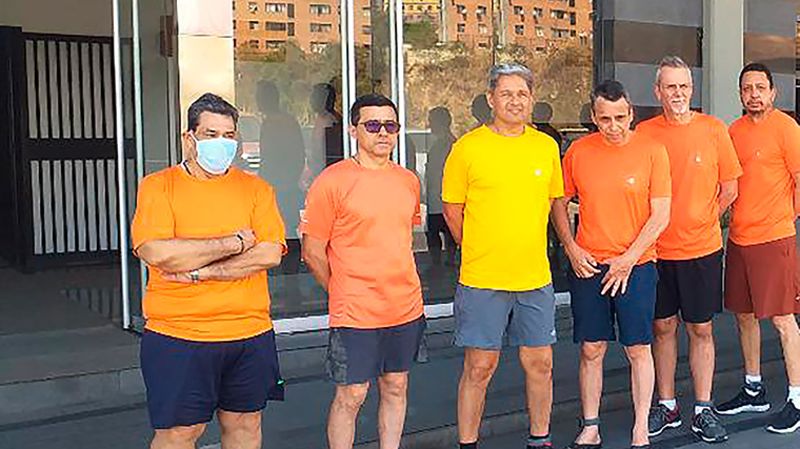
Gustavo Cárdenas is a US citizen detained in Caracas since 2017 and one of six detained oil executives from US refinery CITGO. Later, Jorge Alberto Fernandez, a Cuban-US dual citizen detained in Venezuela since February 2021, was released from prison. He is not one of the so-called “CITGO 6.”
The Caracas trip signals the intention that the White House might be ready to change its relationship to Venezuela in the long term. That’s because Caracas has grown much closer to Moscow under Maduro’s rule.
But it is a high stakes bet: Maduro has walked away from negotiations before — and if it doesn’t work out, Biden will likely pay a political price.
Source: https://www.cnn.com/europe/live-news/ukraine-russia-putin-news-03-09-22/h_3b34013d0e2a27a8a8d858c34e49e2c0















